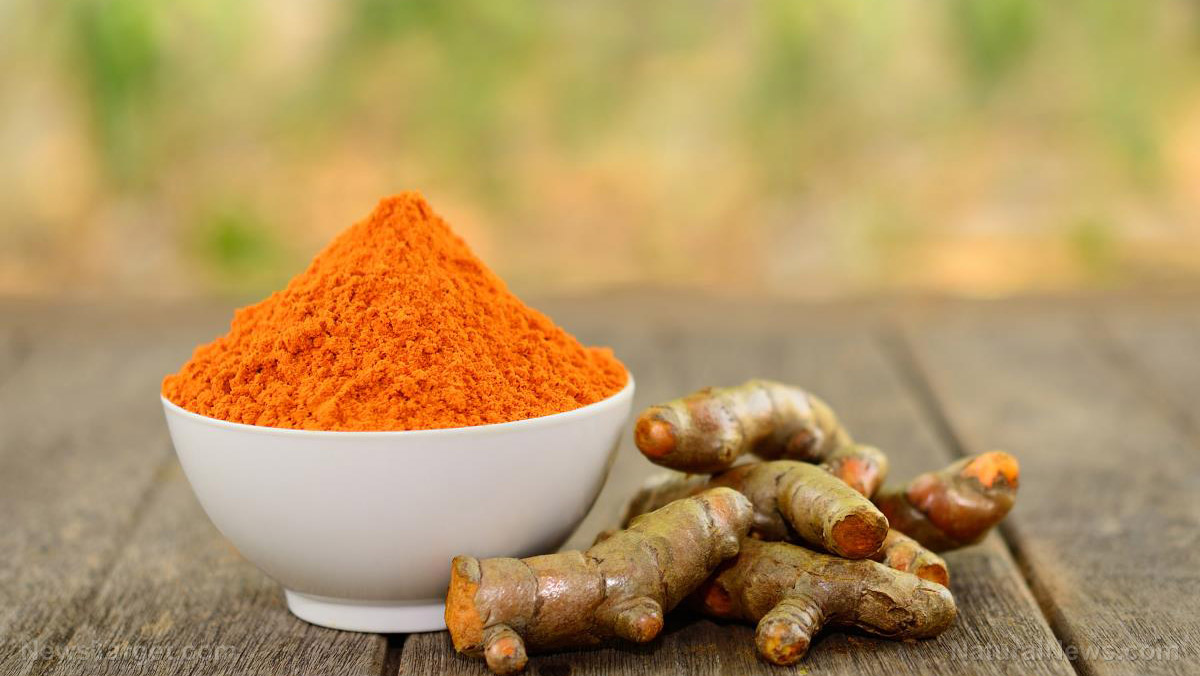The science behind curcumin’s healing properties
12/30/2018 / By Tracey Watson

Turmeric’s long history as a culinary spice dates all the way back to 2,500 years before Christ. This bright yellow, strongly flavored spice has also been used since at least 500 B.C.E. as an essential part of Ayurvedic medicine in India – and no wonder, since curcumin, the substance which gives the spice its bright color, has been found to provide amazing anti-inflammatory properties, all while lowering cholesterol and preventing heart disease.
Now, two studies published in the African Journal of Traditional, Complementary and Alternative Medicines have confirmed that curcumin also has potent antitumor abilities, in addition to protecting the heart against oxidative stress caused by diabetes and nicotine.
In the first study, entitled “Potential antitumor activity of curcumin with retinylester micro-capsuled formula,” the research team developed microcapsules containing curcumin and retinyl ester (a form of vitamin A), and then used Fourier-transform infrared spectroscopy (FTIR) to test their efficacy against HeLa and HepG2 cancer cell lines.
The study abstract noted:
The anticancer activity of these microcapsules on HeLA and HepG2 showed inhibition percent 87% and 85% respectively and non-toxic effect on normal cells.
The author concluded:
Micro capsulated form of curcumin-retinylester showed an efficient medicinal mixture displayed a significant effect to HeLa and HepG2 cells which is very promising … in the treatment of cancer.
In the second study, entitled “Cardioprotective effects of curcumin against diabetes and nicotine-combined oxidative stress,” the authors noted that oxidative stress is responsible for some life-threatening heart conditions. The first of these is diabetic cardiomyopathy (DCM), a serious complication of diabetes in which oxidative stress causes the death of cells in the muscular tissue of the heart. The second is recurrent ventricular tachyarrhythmia, a heart condition which occurs in patients who smoke cigarettes.
Since the curcumin in turmeric is known to protect against oxidative stress, the authors set out to determine its possible efficacy in reducing the risk of these conditions in diabetic patients who are also smokers.
The research team administered nicotine to diabetic rats to increase their levels of oxidative stress, and then administered curcumin to test its ability to protect against the diseases caused by such stress.
The study abstract reported on the results:
Nicotine administration in a dose of 1.5 mg/kg to diabetic rats increased the oxidative stress. This occurs through elevation of plasma nitric oxide (NO) and upregulation of cardiac tissue inducible nitric oxide synthase (iNOS) and Endothelin-1 mRNA expressions, in addition to elevation of plasma triglycerides (TG), and LDL and reduction of HDL levels. … Supplementation of curcumin prevented the diabetic and nicotine-induced oxidative stress through reduction of plasma NO and iNOS and Endothelin-1 mRNA expressions to their control levels and elevation of plasma SOD and upregulation of cardiac tissue Erythropoietin (EPO), vascular endothelial growth factor (VEGF) isoforms and VEGF receptor mRNA expressions. This curcumin protective effect of the cardiac tissue was manifested by normalization of the plasma cardiac marker troponin I and CK-MB.
The authors believe that their study provides conclusive proof that curcumin can protect the heart against the combined oxidative stresses of diabetes and cigarettes.
So, just what is “oxidative stress?” While our bodies need oxygen to survive, when we metabolize oxygen reactive species called free radicals form, and left unchecked, these free radicals can attack the body, causing diseases like cancer. An easy way to picture this process is to think of what happens to an apple after you take a bite out of it and leave it on a countertop for a few hours. The flesh turns brown and starts decaying – the result of exposure to oxygen.
Since curcumin has antioxidant properties, it has the ability to fight these free radicals, preventing oxidative stress and the diseases it causes. (Related: How turmeric kills cancer and how to optimize curcumin absorption.)
So, if you want to prevent a whole host of serious illnesses, try adding a pinch of delicious, non-irradiated turmeric to your daily diet.
Sources for this article include:
Submit a correction >>
Tagged Under:
This article may contain statements that reflect the opinion of the author
RECENT NEWS & ARTICLES
COPYRIGHT © 2017 SUPER FOODS NEWS





















